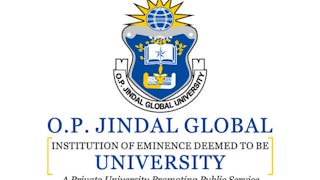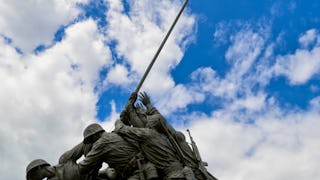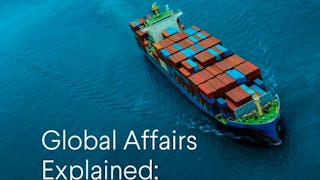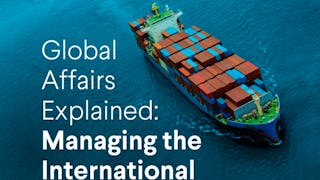Welcome to the Foreign Policies of Great, Middle, and Small Powers course! This course acquaints you with how power matters in the conduct of international relations and how it influences the strategies and tactics of a nation-state in dealing with other nation-states. It demonstrates the link between a country’s ranking in the international system and the means and methods it adopts to deal with the rest of the world. The course begins with introducing a few concepts on what constitutes power in world affairs, how it is calculated, and how the international power configuration changes over time. You will also learn about what foreign policy means and what its constituent elements, strategies, or activities are. Then, the course delves deeper into the case studies of two contemporary great powers, two contemporary middle powers, and two contemporary small powers. These empirical case studies raise your awareness about current developments and trends in foreign relations from different regions of the world. Lastly, the examples of foreign policy approaches and decisions of nation-states, based on world news events of recent times, help you figure out the essence of world politics as it is being practiced in present times, and prepares you to anticipate the future international orders to come.

Profitez d'une croissance illimitée avec un an de Coursera Plus pour 199 $ (régulièrement 399 $). Économisez maintenant.

Expérience recommandée
Ce que vous apprendrez
Evaluate the role of different powers and the strategies they adopt to ensure survival and wellbeing in an ever evolving international context.
Analyse the changing role of military, economic and cultural strategies in influencing decisions in different geopolitical contexts.
Create a strategy for an international issue, factoring in the political, economic, and cultural context of a middle power nation.
Synthesize current and historic understandings of power to develops innovative approaches to address contemporary challenges in the global arena.
Compétences que vous acquerrez
- Catégorie : Social Sciences
- Catégorie : Political Sciences
- Catégorie : Economics
- Catégorie : Public Policies
- Catégorie : Policy Analysis
- Catégorie : World History
- Catégorie : Diplomacy
- Catégorie : Governance
- Catégorie : Security Strategy
- Catégorie : Analytical Skills
- Catégorie : International Relations
- Catégorie : Case Studies
Détails à connaître

Ajouter à votre profil LinkedIn
7 devoirs
Découvrez comment les employés des entreprises prestigieuses maîtrisent des compétences recherchées

Il y a 7 modules dans ce cours
In this module, you will learn about what power means in international relations and how it is measured in terms of specific attributes of a nation-state. You will also learn about core concepts such as international power configuration and international order and the role of units (nation-states and non-state actors) in these structures. The module also analyzes what foreign policy means, how it is formulated on the basis of national interests, why a nation-state adopts a particular type of foreign policy, and how all this is inextricably linked to its power position in the international system. By the end of this module, you will gain an insight into why a great power behaves in a manner that is different from the behavior of a middle power or a small power.
Inclus
11 vidéos5 lectures1 devoir1 sujet de discussion
In this module, you will build upon the earlier awareness of power and foreign policy behavior. You will closely examine the conduct of the USA, which has been a key great power since the end of World War II and how it shaped the post-World War II international system through a variety of strategies and means. You will also gain an insight into how there was a shift in the policies of the USA in tandem with the changes in the international power configuration from the Cold War era of bipolarity to the post-1991 unipolar period, and then again from bipolarity to the present emergent multipolar world order. By the end of this module, you can appreciate how the USA has dealt with fellow great powers and weaker powers and what kind of grand strategy has motivated the USA since 1945.
Inclus
10 vidéos3 lectures1 devoir1 sujet de discussion
In this module, you will apply the insights gained from the earlier conceptual learnings about the links between power and foreign policy by closely studying the case of China, which has rapidly risen in the past two decades to be universally accepted as a great power today. You will evaluate how a once backward and weak China began its ascent in acquiring hard and soft power from the 1970s onward and how its international strategy has shifted from the Cold War era to the post-Cold War unipolar period to the present emerging multipolar age. This module looks especially at China’s relationship with the USA, which has become increasingly conflicted and competitive, and what kind of strategies China has adopted to enhance its relative power vis-à-vis the USA. You will also gain an insight into China’s relationships with middle and small powers in the current era of renewed great power competition.
Inclus
10 vidéos3 lectures1 devoir1 sujet de discussion
In this module, you will learn about concepts like power and foreign policy in the context of an emerging middle power, India, which is estimated to have the potential of becoming a great power. You will also learn how India’s rise in the past two decades is closely associated with its high economic growth, its international multilateral alignments and strategic partnerships, and the vision of its political leadership to attain the status of a leading power in the world. The module will take you along India’s journey from being a sub-regional power in South Asia to an Asian regional power and an important balancing power in present times in the broader Indo-Pacific. Finally, you will gain an insight into the factors pushing India up in the international power configurations and the domestic political obstacles to its rise.
Inclus
10 vidéos3 lectures1 devoir1 sujet de discussion
In this module, you will get acquainted with Africa’s most populous and consequential power, Nigeria, which shares the mantle of continental leadership with South Africa. The module discusses Nigeria’s rise from a sub-regional power in West Africa to a pan-African power with abilities to also speak as a voice for the Global South. You will evaluate the mechanisms and methods Nigeria adopted since independence to assert its international influence and the obstacles posed to its rise by domestic challenges and the neo-colonial presence of France in West Africa. The role of oil wealth, the problem of political instability, and violent extremism will all help bring into focus the centrality of Nigeria and its unfulfilled potential as a middle power heralding an African renaissance.
Inclus
10 vidéos3 lectures1 devoir1 sujet de discussion
In this module, you will learn about the case of a small power, North Korea, which has outsized importance for security and governance in East Asia. The module analyzes the evolution of North Korea’s foreign policy from the Cold War to the post-Cold War and the present emerging multipolar order under the long dictatorship of the Kim dynasty. You will gain an insight into how this small power, which has been mostly isolated from the rest of the world, survives despite international sanctions and why efforts to denuclearize and contain its missile programs have met with limited success thus far. Finally, the module highlights the strategies of a so-called “pariah state” to preserve its regime through unorthodox means and reliance on one significant external benefactor.
Inclus
10 vidéos3 lectures1 devoir1 sujet de discussion
In this module, you will learn about the tiny Persian Gulf monarchy of Qatar, which has adopted a foreign policy mix of alliance with the USA while simultaneously pursuing an independent and ambitious form of assertiveness vis-à-vis its regional competitors. The module discusses the rise of Qatar as a fossil fuel colossus and how it parlayed its natural resource abundance to punch above its weight in the Middle East and global energy institutions. You will also learn why Qatar moved to a policy of supporting Islamist political groups in the region and beyond and how it capitalized on being a small power to become a moderator and mediator in multiple armed conflict zones. Finally, the module also explains how regime survival is a critical driver of foreign policy in this authoritarian country.
Inclus
10 vidéos4 lectures1 devoir1 sujet de discussion
Préparer un diplôme
Ce site cours fait partie du (des) programme(s) diplômant(s) suivant(s) proposé(s) par O.P. Jindal Global University. Si vous êtes admis et que vous vous inscrivez, les cours que vous avez suivis peuvent compter pour l'apprentissage de votre diplôme et vos progrès peuvent être transférés avec vous.¹
Instructeur

Offert par
En savoir plus sur Governance and Society
 Statut : Prévisualisation
Statut : PrévisualisationO.P. Jindal Global University
 Statut : Essai gratuit
Statut : Essai gratuitO.P. Jindal Global University
 Statut : Essai gratuit
Statut : Essai gratuitCouncil on Foreign Relations
 Statut : Essai gratuit
Statut : Essai gratuitCouncil on Foreign Relations
Pour quelles raisons les étudiants sur Coursera nous choisissent-ils pour leur carrière ?




Foire Aux Questions
To access the course materials, assignments and to earn a Certificate, you will need to purchase the Certificate experience when you enroll in a course. You can try a Free Trial instead, or apply for Financial Aid. The course may offer 'Full Course, No Certificate' instead. This option lets you see all course materials, submit required assessments, and get a final grade. This also means that you will not be able to purchase a Certificate experience.
When you purchase a Certificate you get access to all course materials, including graded assignments. Upon completing the course, your electronic Certificate will be added to your Accomplishments page - from there, you can print your Certificate or add it to your LinkedIn profile.
Yes. In select learning programs, you can apply for financial aid or a scholarship if you can’t afford the enrollment fee. If fin aid or scholarship is available for your learning program selection, you’ll find a link to apply on the description page.
Plus de questions
Aide financière disponible,





